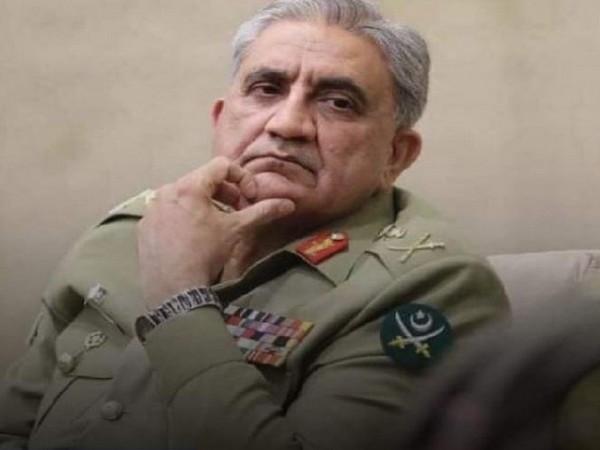
Picture : Twitter/ ANI
General Qamar Javed Bajwa, ex- Chief of the Army Staff of the Pakistan Army since 2016, has retired as the richest Army chief with a whopping wealth of over $12.7 billion in his kitty! In 2018 he had been ranked 68th in the Forbes list of the World’s Most Powerful People. Appointed by the then-prime minister Nawaz Sharif, Bajwa was seen as a military leader who would steer clear of politics and by virtue of that distance, restore some balance to the civil-military equation.
As soon as Bajwa took over as the Chief of the Army, he was aware of the menace of terrorism, which had gripped the country for long and had transiently abated after multiple military operations, was rearing its head again. To combat this fresh resurgence, the military launched Pakistan’s first country operation against terrorism, Radd-ul-Fasaad, on February 17, 2017.
Radd-ul-Fasaad, which roughly translates to ‘elimination of discord’, was initiated to indiscriminately eliminate “residual/latent threat of terrorism”, consolidate gains made in other military operations and further ensure Pakistan’s border security, the military’s media affairs wing explained at the time of its launch.
Unfortunately, by the time Gen Bajwa replaced retired Gen Raheel Sharif in the army chief’s role, Nawaz and his family were already facing investigations and court proceedings over corruption allegations linked to the Panama Papers revelations, abruptly ending his tenure as the Prime Minister on July 28, 2017. The bonhomie between Bajwa and Sharif was short-lived when, in September 2020, the PML-N supremo criticised the military at a multiparty conference of opposition parties of the time and alleged that there was “a state above the state in the country”. He blamed Gen Bajwa and then-Inter-Services Intelligence (ISI) director general Lt-Gen Faiz Hameed, accusing them of toppling his government, pressuring the judiciary, and installing PTI chief Imran Khan’s government in 2018 elections.
More than two years after Gen Bajwa took charge as army chief, the nation was introduced to the ‘Bajwa doctrine’, envisioning better relations with neighbouring countries, a balance in dealing with world powers, eliminating violent extremism and de-weaponising and mainstreaming terrorists, to name a few of the areas it covered. He emphasised on the need of boosting intra-regional trade and connectivity and bringing sustainable development through the establishment of investment and economic hubs. He also called for moving towards lasting and enduring peace within and outside and the non-interference of any kind in the affairs of Pakistan’s neighbours and regional countries.
The relationship between the Gen-Bajwa-led military establishment and the civilian government under Imran Khan remained congenial for the most part and assurances that both sides were on the “same page” would come frequently.
The first signs of a tear in the page between the military and civilian leadership appeared in October 2021 when Imran and Gen Bajwa reportedly disagreed on the ISI chief’s appointment. But the Prime Minister’s Office (PMO) did not issue an official notification of Lt Gen Anjum’s appointment immediately, leading to rumours about strains in civil-military relations. The relations since then turned more sour, finally leading to Imran Khan’s government falling.
Bajwa’s six year as Army Chief has been his roller coaster relations with the three Prime Ministers. Nevertheless, in these six years, he did make a fortune not only for himself but for his extended family too. According to recent reports by Pakistan-based website ‘Fact Focus’, there has been a sharp rise in the wealth of close family members of Bajwa, wherein his immediate and extended family members started new businesses, became owners of farmhouses in prominent cities of Pakistan and bought foreign properties, making billions of dollars. The report is being supported by a lot of data that looks into the financial dealing of Bajwa’s family including his wife Ayesha Amjad, his daughter-in-law Mahnoor Sabir and other close family members.
“Within six years, both families become billionaires, started an international business, purchased multiple foreign properties, started transferring capital abroad, become owners of commercial plazas, commercial plots, huge farmhouses in Islamabad and Karachi, an immense real estate portfolio in Lahore, and so on. The current market value of the – known – assets and businesses within Pakistan and outside accumulated by the Bajwa family during the last six years is more than Rs12.7 billion,” the report said. The report noted how between 2013 and 2017, Bajwa revised the wealth statement for 2013 three times.
Strangely, but true to the Pakistani government approach, the government authorities have rather launched a probe against a journalist who leaked explosive tax records of Chief of Army Staff (COAS) General Bajwa’s family members, who were said to have accumulated disproportionate wealth in the past six years. The Finance minister Mohammad Ishaq Dar’s office issued a statement saying that he has taken cognisance of the ‘illegal and unwarranted leakage of tax information’, deeming it to be violative of the confidentiality of tax information that the law provides. In the meanwhile, the outgoing army chief rejected the news as “fake and false”.
The fortune of General Bajwa’s family, with many family members skyrocketing from zero assets to becoming billionaires in just six years, shows the hold and thus the ill-treatment that the Pakistan Army extends to the nation. It extracts a heavy cost in the name of defending the country.
[the_ad id=”55724″]


















